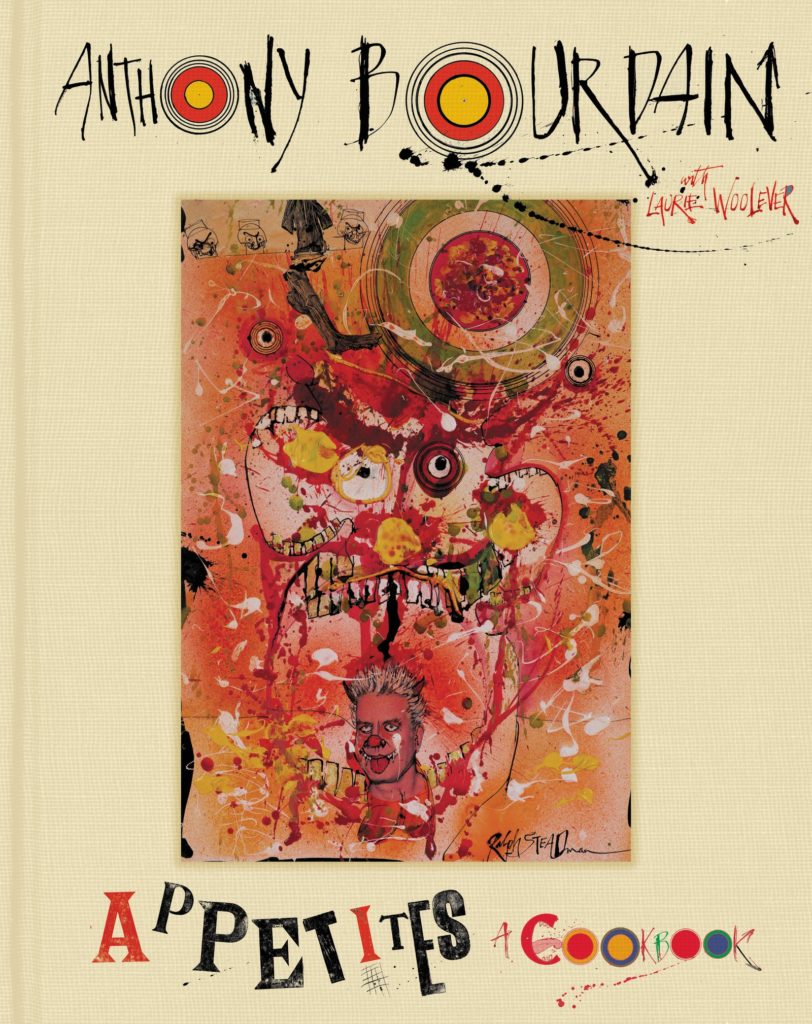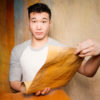In 2000, Anthony Bourdain’s best-selling memoir, “Kitchen Confidential,” gave readers what was then a shocking glimpse at the difficult, dangerous and sometimes hedonistic lives of restaurant kitchen workers.
The tough-talking master chef has since gone on to become a megastar of food and travel TV. He’s won a Peabody and three Emmys in a row for his current CNN travel show, “Parts Unknown.” Bourdain’s new cookbook — co-written with Laurie Woolever — is called “Appetites.”
He stopped by to answer a few of our listeners’ etiquette questions, but before he gave some wry advice, he talked to us about a few things, including how being a dad influenced “Appetites” and how the culinary world has changed since his “Kitchen Confidential” days.
Interview highlights:
On why he chose to write a cookbook at this point in his career
Anthony Bourdain: I’m a dad now of a 9-year-old girl and that’s who I’ve been cooking for for the last better part of nine years, and it makes me really happy.
Most of the work that I’ve been doing since I stopped cooking professionally, let’s be honest, it’s always been about me, me, me. And I thought this was– I’m not saying I’m giving back, but… it’s a rare departure in that I try to make something that’s useful and reflective of the kind of food that I’ve been making for the last few years as a dad.
On the one recipe that gets at the heart of what this cookbook is about

Anthony Bourdain: There are a couple of [recipes]. I mean, I think even the complicated sounding Budae Jjigae, which is a Korean army stew, is actually pretty child or dorm-friendly.
My daughter loves making ratatouille with me. She likes cooking pastas and eating pastas. Her mom’s Italian, so, you know, salty, a little fish and octopus tentacles, smelly cheese — these are not strangers to her.
Italian babies, by the way, if you go to the baby food aisle in Italy, they have like rabbit flavor and even a horse flavor. So, my joke was always like, when she reaches that age when she wants to, you know, “Daddy, I want a pony,” I could always grab her a jar of that and say, “Here’s your pony!”
On what strives to avoid when doing a cookbook
Anthony Bourdain: Food that’s too pretty or that you’re clearly not gonna be making at home — it will never look like that — or food that presumes that you’re gonna get hollandaise sauce right every time, for instance. You’re not.
Professionals learn through repetition and failure and more repetition. And I think understanding what you’re good at and what you should probably be trying… you shouldn’t be doing something over complicated if you’re having guests over you want to impress.
A lot of what I talk about in the book is just organizing yourself in a way that I’ve learned as a professional to cook at home for guests in a way that will allow you to actually spend time with them.
On how the culinary world has become a little more buttoned up since “Kitchen Confidential” was published
Anthony Bourdain: Well, look, I haven’t worked in a kitchen for 15 years. It’s a very different world. In fact, when I was writing about [it in] “Kitchen Confidential,” I was looking back at a period in the ’90s and ’80s and even the ’70s.
So, when “Kitchen Confidential” came out, I was not sitting at home snorting rails off a prostitute, you know? Life had changed a lot and the culture of kitchens has changed enormously since I left it.
[It’s] a lot more professional, it’s a higher status profession. If you’re smart and creative and work hard and have good standards, there’s a chance you might actually attain some kind of success or financial security. Whereas that was never a possibility in my time. Certainly, smoking or drinking heavily, or doing drugs visibly in the kitchen in front of other cooks, any kind of a quality restaurant, they tend to frown on that now.
If you’re getting into the restaurant business because you wanna party like it’s 1979, good luck to you. You’re not gonna last long.
This interview has been edited and condensed.


